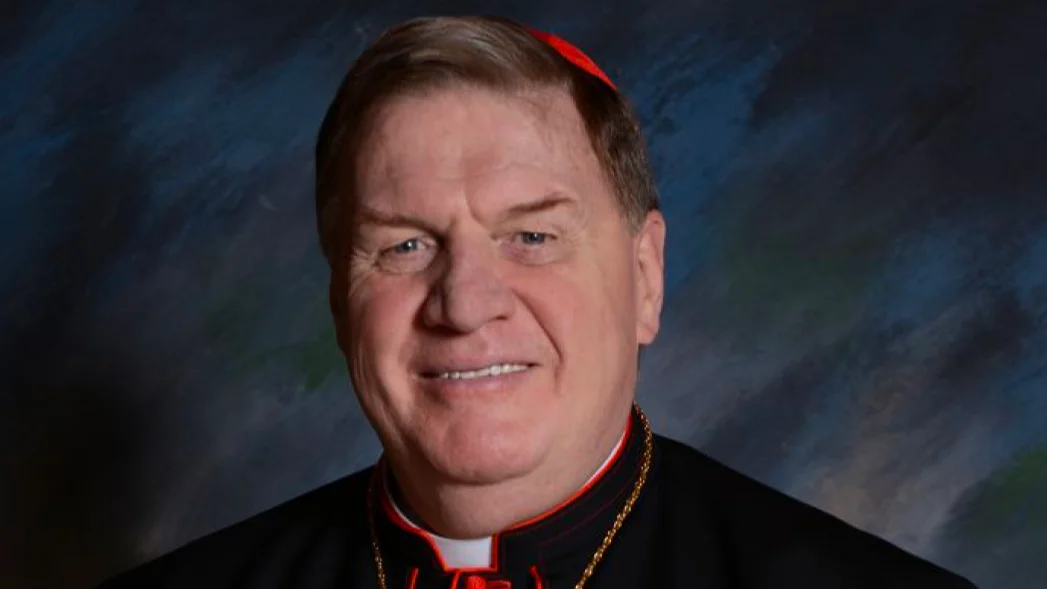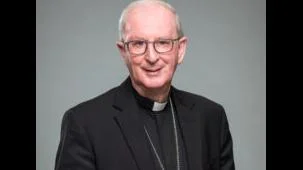
Cardinal Joseph W. Tobin, C.Ss.R., D.D. Archbishop | Archdiocese of Newark website
Cardinal Joseph W. Tobin, Archbishop of Newark, has reflected on the meaning of the Eucharist following the celebration of Corpus Christi in Rome by Pope Leo XIV. The event took place on June 22, 2025, at the Basilica of St. John Lateran and included a traditional Eucharistic procession and blessing.
In his message to Catholics, Cardinal Tobin highlighted themes from Pope Leo’s homily and cited Saint Augustine of Hippo. He shared Augustine’s words:
“Cristo es verdaderamente ‘panis qui reficit, et non deficit; panis qui sumi potest, consumi non potest’ (Serm. 130, 2): Él es el pan que restaura y no se agota; el pan que se puede comer, pero no se acaba. La Eucaristía, de hecho, es la presencia verdadera, real y sustancial del Salvador (cf. Catecismo de la Iglesia Católica, 1413), que transforma el pan en sí mismo para transformarnos en El mismo.”
Cardinal Tobin noted that Saint Augustine encouraged believers to live as if they deserved to receive “the daily bread from heaven,” even while acknowledging that no one is truly worthy of this gift. According to Cardinal Tobin:
“La Sagrada Comunión es siempre un don completamente inmerecido que recibimos como resultado de la gracia de Dios.”
He explained that nothing individuals do can make them worthy to receive Christ in their hearts; rather, they are called to be prepared and grateful when receiving this sacrament.
Saint Augustine’s teachings were further discussed by Cardinal Tobin as he emphasized lifelong conversion and hope:
“San Agustín nos exhorta a cambiar nuestras vidas… y a ver nuestras vidas como un camino progresivo de esperanza en el que buscamos continuamente el rostro del Señor.”
Cardinal Tobin stressed that all gifts from Christ come freely through God’s generosity:
“No hacemos nada para ganarnos la gracia de Dios. La recibimos gratuitamente porque la naturaleza misma de Dios es dar generosamente…”
He identified the Eucharist as the greatest gift because it represents an intimate communion with Christ.
The message also addressed the ongoing need for repentance and reconciliation:
“Nuestras imperfecciones se manifiestan en nuestras palabras y acciones—en lo que decimos o hacemos… Estamos llamados a arrepentirnos, a confesar nuestros pecados…”
This continual pursuit of perfection is central to the Sacrament of Reconciliation.
Quoting Pope Benedict XVI regarding Saint Augustine’s spiritual journey and referencing Augustine’s “Confessions,” Cardinal Tobin said:
“El descanso eterno que conoceremos en el cielo no es una experiencia de monotonía… Será una aventura que nos impulsará más profundamente… al descubrimiento del amor y la misericordia infinitos de Dios.”
He encouraged participation in the Eucharist as a way to grow in holiness and charity.
A selection from Saint Augustine’s Sermon 272 was included in which he explained how bread and wine become symbols for unity among believers:
“Lo que ven es un pan y un cáliz – esta es la información que sus ojos indican... Mas según nuestra fe... el pan es el cuerpo de Cristo y el cáliz la sangre de Cristo... Si ustedes son el cuerpo y los miembros de Cristo... sobre la mesa del Señor está el misterio que son ustedes mismos y reciben el misterio que son!”
Augustine compared many grains making one loaf and many grapes making one wine as symbols for unity within the Church.
Pope Leo XIV’s homily excerpt reiterated these themes:
“Cristo es la respuesta de Dios al hambre del hombre… Cuando nos alimentamos de Jesús… vivimos para Él… Nuestra naturaleza hambrienta lleva la marca de una necesidad que es saciada por la gracia de la Eucaristía.”
The pope described how sharing in the Eucharist brings believers together into one body.
Cardinal Tobin concluded his message with a prayer inspired by Saint Augustine:
“Señor, tú sabes que no soy digno de que entres en mi casa, pero una palabra tuya bastará para sanarme…”
This reflection comes at a time when Catholic leaders continue emphasizing the importance of understanding sacramental theology within church teaching (see Catechism reference above) and fostering unity among members through regular participation in Communion ceremonies worldwide.





 Alerts Sign-up
Alerts Sign-up